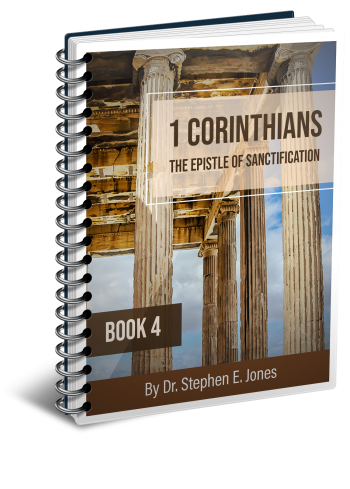Latest Posts
View the latest posts in an easy-to-read list format, with filtering options.

An in-depth commentary/study on chapters 14 through 16 of First Corinthians.
Category - Bible Commentaries

In 1 Corinthians 15:30 Paul asks,
30 Why are we also in danger every hour?
He means to say that if the dead are not raised, if there is no resurrection, then what is the point of believing in Christ, which only puts us in constant danger of being arrested and possibly even killed for “sedition” against the government and its approved gods? He continues in 1 Cor. 15:31,
31 I protest, brethren, by the boasting in you, which I have in Christ Jesus our Lord, I die daily.
His protest was against those who would deny the resurrection. Yet he also affirms that the believers in Corinth did indeed believe in the resurrection; hence, Paul was able to boast about their acceptance of the truth that he himself had deposited in their midst. For this reason, he said, “I die daily.”
Paul spoke on two levels here, for his words had a double meaning. On the surface, he was willing to be “in danger every hour,” knowing that at any time he might be called upon to bear witness to Christ as a martyr. He might die physically at any time, but being willing to accept such danger, Paul put to death the will of the soul and desire of the flesh to seek their own comfort and wellbeing. 1 Cor. 15:32 affirms this:
32 If from human motives I fought with wild beasts at Ephesus, what does it profit me? If the dead are not raised, let us eat and drink, for tomorrow we die.
Paul had not literally fought with wild beasts at Ephesus, for he was neither a gladiator nor had he been cast to the lions as a believer. But half a century later, Ignatius, bishop of Antioch, would write in his Epistle to the Ephesians, chapter 1,
“For, on hearing that I came bound from Syria for the sake of Christ, our common hope, trusting through your prayers to be permitted to fight with beasts at Rome, that so by martyrdom I may indeed become the disciple of Him ‘who gave Himself for us, an offering and a sacrifice to God,’ [you hastened to see me].”
Paul himself says that such martyrdom, brought about by refusing steadfastly to deny Christ, would be unprofitable if the dead were not raised. If there is no resurrection, it would be better, as many people said, to “eat and drink, for tomorrow we die.” In other words, enjoy life now while you can, and do not do anything to cause the governors to execute you. Isaiah 22:13 also mentions such worldly philosophy, which apparently was widespread in his own time among his own people.
Paul continues in 1 Cor. 15:33, 34,
33 Do not be deceived: “Bad company corrupts good morals.” 34 Become sober-minded as you ought, and stop sinning; for some have no knowledge of God. I speak this to your shame.
The underlined portion above is a quote from Thais of Menander, an Athenian poet and comedian who had written his plays about three centuries earlier. The KJV renders this quotation: “evil communications corrupt good manners.” Thais of Menander had popularized a principle called “comedy of manners,” exposing the various weaknesses and failures of Greek morality.
Comedy of manners, witty, cerebral form of dramatic comedy that depicts and often satirizes the manners and affectations of a contemporary society. A comedy of manners is concerned with social usage and the question of whether or not characters meet certain social standards. Often the governing social standard is morally trivial but exacting. The plot of such a comedy, usually concerned with an illicit love affair or similarly scandalous matter, is subordinate to the play’s brittle atmosphere, witty dialogue, and pungent commentary on human foibles.
Paul acknowledges the truth of his saying that “bad company corrupts good ethos,” or ethics, so he adopts it as a Christian truth. In other words, Paul says, “stop sinning; for some have no knowledge of God.” He implies that those who continue sinning lack the knowledge of God, that is, God’s nature or character.
Paul also recognized that some believers needed to raise their standard of behavior to conform to the way of life that God intended for them. In writing this, Paul was following Menander’s lead, for Menander’s purpose was also to raise the standard of ethics in Greek society by pointing out its deficiencies.
Paul had been well educated in Greek philosophy and literature before going to Jerusalem to study under Gamaliel. His background made him—of all the apostles—the most effective missionary to the Greeks and enabled him to convey the Hebrew scriptures to Greek minds.
Paul’s lesson here is that because of our belief in the resurrection of the dead, we have hope that allows us to “die daily” without fear that death may be the end of all things. For this reason, we do not have to change our witness to suit the governing officials. We do not need to deny Christ when they demand that we submit to their false gods.
This attitude of dying daily then carries over into our daily behavior, for as we come into the knowledge of God, we deny the flesh and its carnal desires, treating the old man as if he were dead.